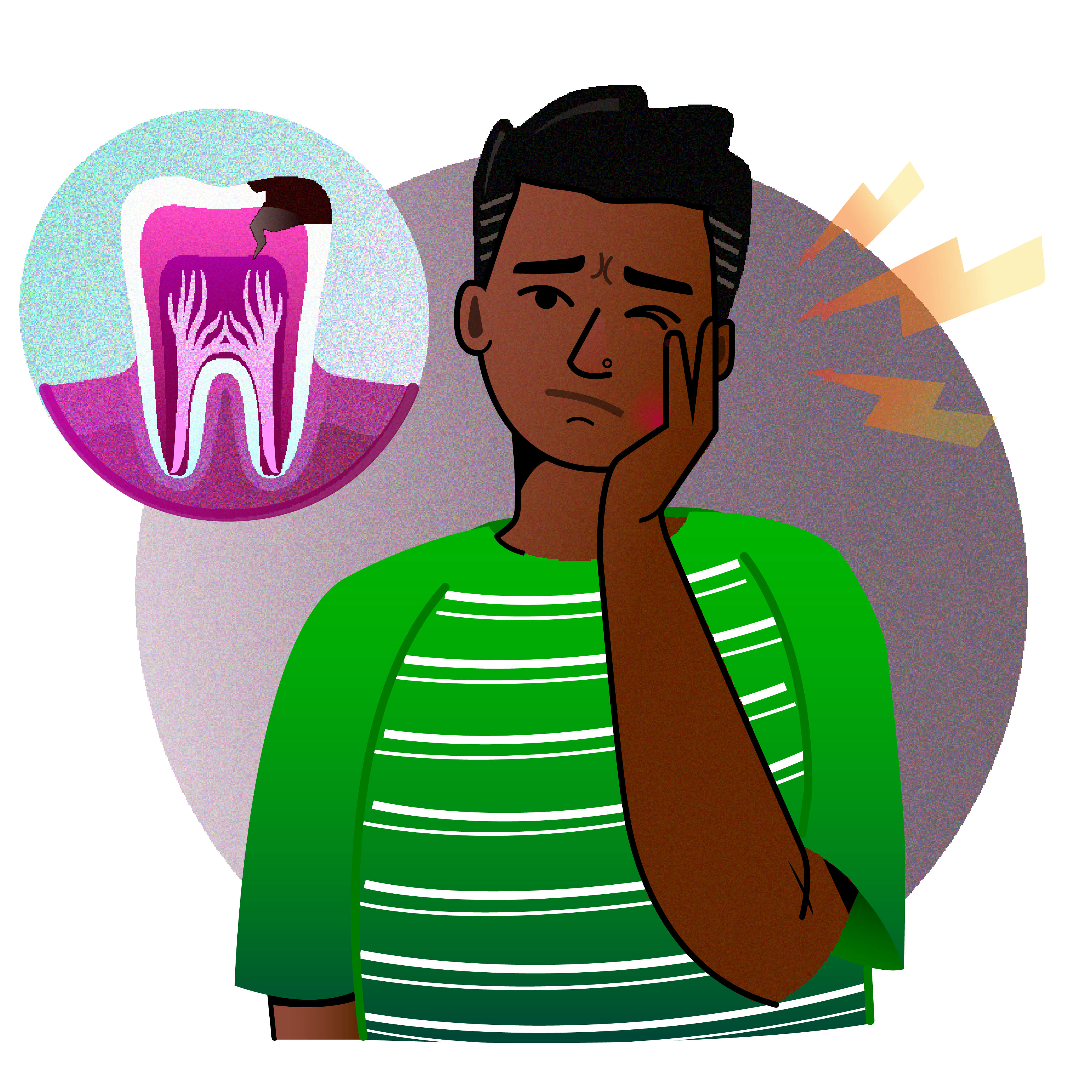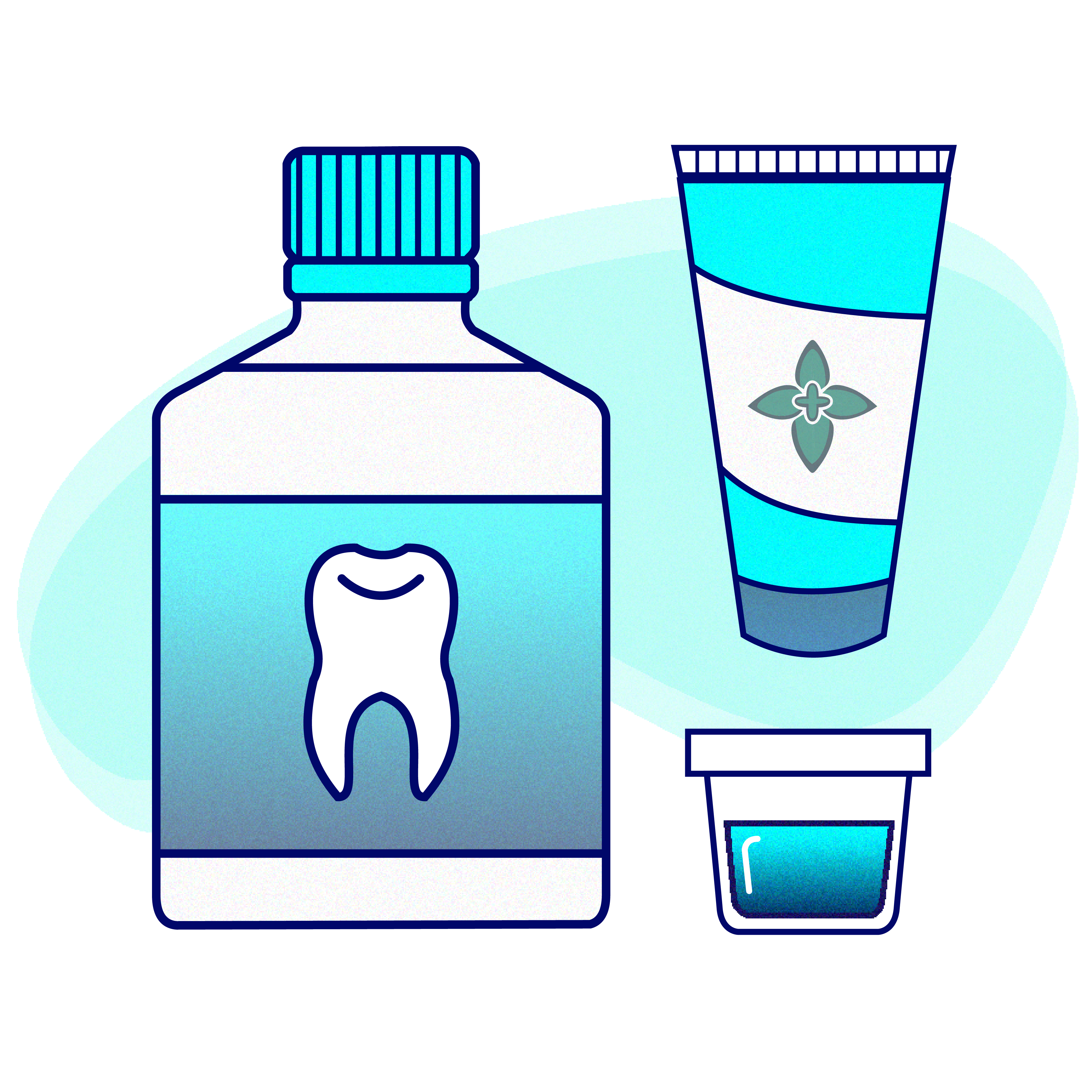
Do you feel like you get cavities (dental caries/tooth decay) more easily or more often than other people?
You might be right!
Genetics shape many things about you – including things that impact your oral health. Factors such as the strength of your tooth enamel, the production of saliva, and the shape of your teeth all come from your genetics. A connection between genetics and the development of cavities was shown in a 2016 study. About 60% of tooth decay was linked to genetic factors.
With strong enamel, the surface of your teeth provides better protection for the inside of your teeth. The makeup of saliva affects the balance of bacteria in your mouth, including bacteria that can lead to cavities. The size and shape of your teeth can make them easier or more difficult to clean, cause you to need braces or other dental appliances that impact your oral health routine, and influence other lifestyle choices such as your diet.
Other common risk factors for more frequent cavities are snoring, snacking, and missing regular dental visits. Drinking plenty of fluoridated tap water, eating a nutritious and varied diet, and seeking out advice from your dental team are all crucial for cavity prevention.
Your upbringing may also play a factor. In fact, there is a direct relationship between how children take care of their teeth and how their parents do. Children learn the importance of preventive care – brushing, flossing, visiting the dentist – from their parents. If you weren’t taught this early on and didn’t develop proper habits, you are more likely to overlook oral health, which can cause problems down the road.

If other people in your family often develop cavities, consider speaking to your dentist about sealants, fluoride treatments and other preventive strategies that could help protect your teeth.
Understanding how genetics influence tooth decay could help studies that lead to more sophisticated technologies for prevention and treatment.
This information in this post is for general educational purposes only and does not warrant or represent any information as related to health as specifically appropriate for you. It is not intended to be medical advice or replace the relationship that you have with your health care providers. You should always seek medical advice on any diagnosis or treatment from a qualified health care provider. The information is provided “as is” without any representations or warranties, express or implied.
References:
- Dos Anjos AMC, Moura de Lima MD, Muniz FWMG, Lima CCB, Moura LFAD, Rösing CK, de Moura MS. Is there an association between dental caries and genetics? Systematic review and meta-analysis of studies with twins. J Dent. 2023 Aug;135:104586.
- Abbasoğlu Z, Tanboğa İ, Küchler EC, Deeley K, Weber M, Kaspar C, Korachi M, Vieira AR. Early childhood caries is associated with genetic variants in enamel formation and immune response genes. Caries Res. 2015;49(1):70-7.
- Bayram M, Deeley K, Reis MF, Trombetta VM, Ruff TD, Sencak RC, Hummel M, Dizak PM, Washam K, Romanos HF, Lips A, Alves G, Costa MC, Granjeiro JM, Antunes LS, Küchler EC, Seymen F, Vieira AR. Genetic influences on dental enamel that impact caries differ between the primary and permanent dentitions. Eur J Oral Sci. 2015 Oct;123(5):327-334.
- Cavallari T, Salomão H, Moysés ST, Moysés SJ, Werneck RI. The impact of MUC5B gene on dental caries. Oral Dis. 2018 Apr;24(3):372-376.
- Fejerskov O. Changing paradigms in concepts on dental caries: consequences for oral health care. Caries Res. 2004 May-Jun;38(3):182-91.






